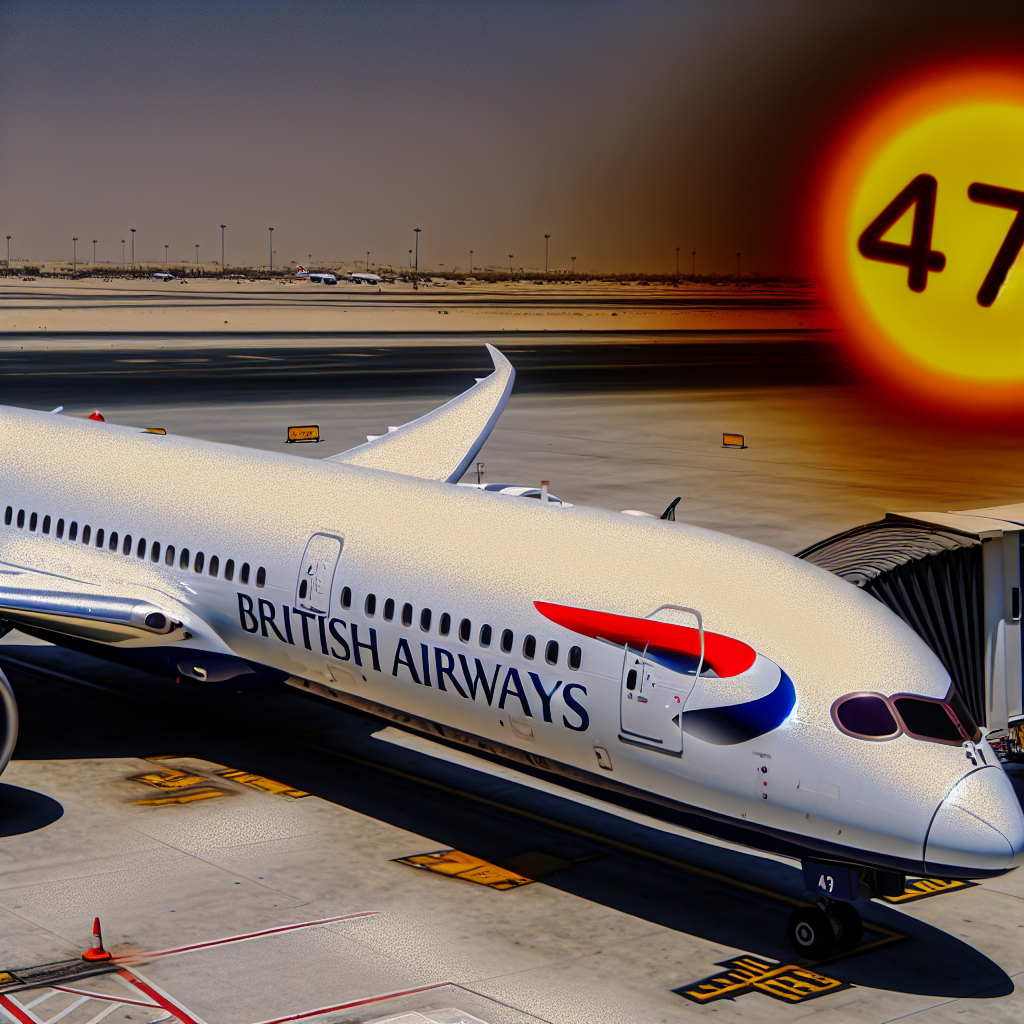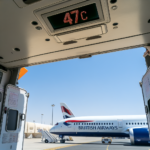DUBAI- British Airways (BA) passengers encountered extremely hot conditions aboard a Boeing 787-9 Dreamliner due to a malfunction that left them without Air Conditioning (AC) during a two-hour delay on the tarmac.
This incident took place on May 24 when Flight BA104 was set to travel from Dubai International Airport (DXB) to London Heathrow (LHR). An Auxiliary Power Unit (APU) failure occurred, hindering cabin cooling prior to departure, as reported by PYOK.
British Airways Flight BA104 was scheduled to depart for a seven-hour journey to London. Passengers boarded the Boeing 787-9 Dreamliner on schedule but were quickly met with rising temperatures inside the cabin as a result of the APU failure.
The APU is crucial for providing power and air conditioning while the aircraft is on the ground. In typical situations, ground equipment can compensate for a malfunctioning APU, allowing for cooling to commence once the engines are started. However, complications arose after the aircraft pushed back from the gate, stopping during taxiing because of a cockpit warning light.
As the gate was now occupied, the plane was rerouted to a remote cargo area, resulting in passengers enduring stifling conditions.

Passenger Experiences
Passenger Jacqueline Stringer described the internal cabin temperature soaring to 47°C (116.6°F). Parents had to strip children down to diapers in a desperate attempt to help them cool off, and only one cup of water was provided per passenger.
Flight attendants reportedly had difficulty delivering additional service due to the unbearable heat.
Stringer, who suffers from high blood pressure, found the experience to be both physically and mentally taxing. She later sought advice from a British Airways complaints forum, receiving mixed responses—some were sympathetic, while others were dismissive.
British Airways publicly acknowledged the technical issue in a statement and confirmed that the aircraft returned to stand for maintenance before eventually departing. The airline expressed gratitude to customers for their patience but did not mention any compensation or formal apology.
A failure of the APU and extended ground delays are not uncommon in aviation; however, prolonged exposure to extreme heat presents significant health and safety risks. Experts argue that protocols should focus on the well-being of passengers and crew, even if it causes operational complications or delays.
Operational Challenges
Reboarding passengers after a ground delay presents a complex logistical challenge that airlines typically prefer to avoid.
However, when temperatures rise above safe limits, the need for temporary evacuation becomes more compelling.
Cabin temperatures exceeding 40°C can lead to dehydration, heat exhaustion, or more severe health issues, particularly among children, the elderly, and individuals with pre-existing health conditions.
Stay informed for more updates by following us on social media. Join us on Telegram Group for the latest in aviation news. Don’t forget to connect with us on Google News.
Based on an article from aviationa2z.com: https://aviationa2z.com/index.php/2025/05/28/british-airways-passengers-stuck-without-ac-at-dubai/?utm_source=rss&utm_medium=rss&utm_campaign=british-airways-passengers-stuck-without-ac-at-dubai



